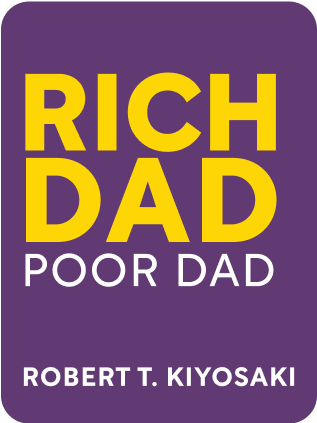

This article is an excerpt from the Shortform summary of "Rich Dad Poor Dad" by Robert T. Kiyosaki. Shortform has the world's best summaries of books you should be reading.
Like this article? Sign up for a free trial here .
Do you need to know how to get rid of laziness? Is laziness stopping you from achieving your goals?
In Rich Dad, Poor Dad Robert Kiyosaki argues that learning how to get rid of laziness can change your life. Knowing how to get rid of laziness can help you overcome obstacles on your journey toward financial independence. Here’s how to stop laziness, and why you need to do it now.
How to Get Rid of Laziness
Some people feel developing financial intelligence is too much hassle. Consider, would you rather put in some hard work now and enjoy decades of a better life, or suffer through the rest of life? This is where learning how to get rid of laziness comes in.
Counterintuitively, busy people are often the most lazy. They stay busy as a way of avoiding something they don’t want to face.
Consider someone who works all day and weekends to make ends meet, without confronting bigger problems like how to build wealth or their family’s well-being. They can brush off investment opportunities as, “I’m working hard enough as it is, and my boss wants me to do more work. I don’t have the time.” In reality, they don’t want to push themselves to do the harder thing of figuring out novel, less-obvious solutions to getting more money.
Forcing yourself to think about how to make more money is like exercising at the gym. The more you work your mental money muscles out, the stronger you get. This is one mind-frame to think about as you consider how to get rid of laziness.
Corollary: Find areas that people don’t to work in, and there are likely unclaimed opportunities there.
- People often don’t want to invest in real estate because they don’t want to fix toilets. Their loss is your gain. And in reality, you can hire a property manager to handle the physical work.
Great opportunities arise in a changing world, and recognizing them is one way to figure out how to stop laziness. (Shortform note: Put technically, markets are less efficient and less at equilibrium when things rapidly change, like through new technology.)
300 years ago, land was the basis of wealth. Then factories and industry became the new basis for wealth. Today, it’s information. And by its nature, information changes more rapidly than land or manufacturing. So it’s even more important to keep learning and adapting, quickly, as it’s ever been. Adapting is another important element to consider when thinking about how to get rid of laziness.
(Quote from Charlie Munger: “In my whole life, I have known no wise people (over a broad subject matter area) who didn’t read all the time — none, zero. You’d be amazed at how much Warren [Buffett] reads.”)
This doesn’t have to be difficult or intense. Robert Kiyosaki mentions jogging through his neighborhood to spot which houses were listed for sale for longer than others, and making low-ball offers for these houses. Using time like this can help you learn how to stop being lazy.
The more you learn and the more experience you get, the more money you make, which gives you more chances to learn even further. The faster you can iterate your knowledge, the faster the returns compound.
Learn Broadly
Many people with great talent in their trade aren’t rich. They’re specialists and proud of it. They aren’t continuing to learn but that doesn’t mean they need to learn how to stop being lazy.
Often, they just need to learn and master one more skill to dramatically boost their income.
- Analogy: How many people can make a better hamburger than McDonald’s? Most people would think so. Then why does McDonald’s make more money than they do? Because McDonald’s has mastered a business system, while most people focus on building a better hamburger.
Notable examples of underappreciated skills include sales, marketing, communication, negotiating, investing, people management, and financial intelligence. So, if you’re wondering how to stop being lazy, take cues from experts.
- Consider taking a pay cut to work at a firm where you’ll gain a critical orthogonal skill – like marketing at an ad agency, or people leadership in the military.
- Rich Dad invited his son and the author to work in a broad set of roles at his companies (bus boy, construction worker, accounting) and participate in meetings with bankers, lawyers, and accountants.
Look ahead at what skills you want to acquire before choosing a profession and specializing in the rat race. The rat race won’t help you learn how to stop laziness.
Side note: if you do specialize instead of generalize, make sure you have a union. If your specialist skills are of limited value outside the industry, like teachers or airline pilots, you’ll have nowhere to work if you get pushed out of the industry.
Learning how to get rid of laziness can be life-changing. As you discover how to get rid of laziness, you can also learn to increase your productivity, and work toward gaining wealth.

———End of Preview———
Like what you just read? Read the rest of the world's best summary of Robert T. Kiyosaki's "Rich Dad Poor Dad" at Shortform .
Here's what you'll find in our full Rich Dad Poor Dad summary :
- The key differences in how rich dad and poor dad approached life
- Why it's a terrible idea to buy an expensive house
- How to overcome your own mental blocks to become wealthy for life






